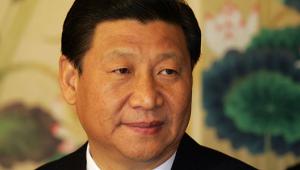Despite rising global trade tensions, the Washington-based lender estimated that the Chinese economy would grow at 6.6% this year, a slightly slower rate than last year’s 6.9%.
The IMF said: “China’s near-term outlook remains robust due to strong domestic momentum, recovering global trade, and significant reform progress.”
But it added: “The authorities will need to build on the existing reform agenda and take advantage of the current growth momentum to ‘fix the roof while the sun is shining’.”
The fund said that China, which after decades of reforms has been transformed from one of the poorest countries in the world to its second largest economy, must stick to its reform agenda and economic rebalancing.
It must also continue to rein in credit growth, rebalance the economy, foster openness and modernise policy frameworks, the IMF said.
The fund added that even with a gradual slowdown in growth, China could become the world’s largest economy by 2030.
The IMF praised China’s progress in reducing financial sector risks and further opening its economy, but added that credit growth was still unsustainably high as some aspects of the country’s rebalancing had slowed.
The Asian country has tried to rein in rapid credit growth over the last two years, which economists say will slow growth in the near term but is needed to avoid long-term risks.
It said: “China is at an historic juncture. After decades of high-speed growth, the authorities are now focusing on high-quality growth.
“Whether and how this shift is carried through will determine China’s development path for decades to come.”
The fund added that China should increase spending on health, education and social services – financed by taxes on income, property and carbon emissions – to support consumption and reduce inequality and pollution further.
“A more comprehensive approach to structural reforms, such as increasing transfers to the regions most affected by overcapacity reduction or pollution control, could help address the tensions across rebalancing dimensions.”













